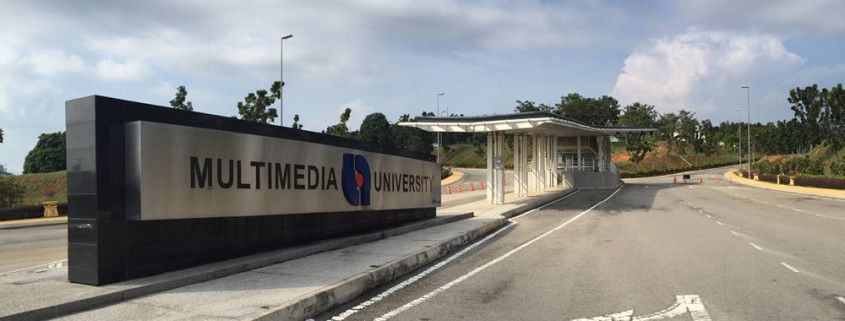The Affordable Destination for Globally Recognized Education!
With its world-class education system and strong international reputation, Malaysia is an increasingly popular study destination for international students interested in education abroad. Malaysia has about 50,000 international students from more than 100 countries studying in private schools, international schools, colleges, private universities, foreign universities branch campus and public universities. They are enrolled in a wide range of disciplines at every level of education, including short-term and professional courses, diplomas, bachelor degree and other post-graduate studies such as masters degrees right through to doctoral degrees
WHY SHOULD YOU STUDY IN MALAYSIA ?
Some of the common reasons to choose Malaysia as a preferred overseas study destination are:
Accredited and High Quality Education Programs: All educational institutions in Malaysia is closely monitored by the Malaysian Education Ministries through their quality control authorities such as National Accreditation Board (LAN) and the National Quality Assurance Body, and appropriate legislation such as The Education Act, 1996, the Private Higher Educational Institutions Act, 1996 and The Malaysian Qualifications Agency Act 2007. The Malaysian Qualifications Agency (MQA) is set up to implement and enforce the Malaysian Qualifications Act 2007.
This ensures that higher educational institutions both private and government owned provide comprehensive world standard range of education programs supported by the latest educational tools and technologies. Malaysia’s internationally recognized broad based curriculum and high quality education will equip students with relevant qualifications to succeed in a competitive environment thus form a strong foundation for future success. As part of the government’s effort to promote tertiary education in Malaysia to foreign students, a government information website www.mohe.gov.my was set up.
Working While Studying for a Degree: Malaysia’s student-friendly laws allow holders of student pass or permit are allowed to work while studying for their degree for up to 20 hours part-time per week during semester breaks or holidays of more than 7 days (subject to immigration requirements). This will enable you to earn extra pocket money during your stay here.
Competitive Tuition fees: Malaysia’s colleges and universities are very reasonable and highly affordable course fees, among the lowest in the region. This makes Malaysia a popular destination for good quality education at very competitive rates and cost-savings.
Low Living Cost: The cost of living for international students in Malaysia for comfortable living is comparatively very low. Students can choose between on-campus or off-campus accommodations: college hostels, apartments, link-houses and condominiums.
This represents a great savings of living expenses. A contributing factor towards the low living cost is the Malaysian Ringgit is less expensive compare to other currencies from countries like the United Kingdom, USA and Australia.
Comprehensive List of Diploma and Degree Courses: International students can choose from a comprehensive range of courses, programs and other study options offered by hundreds of universities and colleges in Malaysia. Some popular study options include unique collaborative degree programs such as twinning degrees & 3+0 degree programs. Malaysia is well-known for its undergraduate ’2+1′ twinning degree programme, which offer a cost-saving route for quality education and qualifications from reputable international universities in the United Kingdom, USA, Australia, Canada, New Zealand and France.
Classes Conducted in English: English is the Medium of Instruction of private colleges and most of the government universities. It is also commonly used among Malaysians, making living and studying easy for students.
For those less proficient in the language, most colleges also offers English Proficiency classes. Picking up the language is easy because Malaysia offers an environment ideal for those who are interested to improve their command of English.
Multicultural Studying Environment: Malaysia offers another crucial aspect of a student’s education – living and interacting in a multi-ethnic, multi-culture and multi-religion country. Not only can international students interact with the three major Malaysian races i.e. Malay, Chinese and Indians as well as the other minority groups, they are also exposed to other students from different nationalities. Experiencing a diverse culture, languages and religions will broaden students’ outlook and will benefit students in an increasing globalized economy.
Hassle Free Immigration Procedure for International Students: International students who wish to study in Malaysia will find that the administrative process easy and without hassle.
Stable Government and Geographically Safe Country: Malaysia with its all year round tropical climate is free from major natural disasters. It has a strong economy and is a socially safe country with a stable government and a low crime rate, making it an ideal place to study.
MALAYSIAN EDUCATION SYSTEM AT A GLANCE
Primary Education: Only primary school education is compulsory in Malaysia, where multilingual public schools, private schools and home educators co-exist side by side. Following unregulated preschool education a child enters primary school at age 7 for a period of 6 years. Following schooling in the community language of their choice they must sit for their primary school achievement test in order to qualify to study further.
Secondary Education: There is no identified middle school period although secondary education is divided into 2 phases. Following the first 3 years of general education students write for their lower certificate of education. Thereafter they enter either the arts or the science stream according to personal choice and teacher advice for 2 years. Once in that stream though, switching opportunities are limited. Following this latter period, they may complete 6th form, or study for a further 2 years for matriculation exemption.
Vocational Education: The department of skills development oversees the establishment and operation of all public and private training institutions. It has developed almost 1,000 standards for certificate, diploma and advanced diploma training, and is rolling more out in approximately 20 identified key areas.
Tertiary Education: Controversy continues to surround heavily subsidized Malaysian tertiary education because of tight quotas that protect the racial majority. Some progress has been made in the direction of a greater meritocracy though, and in the interim disadvantaged students have the opportunity of enrolling at private or foreign branch universities.
The University of Malaya, which evolved from the Federated Malay States Government Medical School founded in 1905 is the oldest functioning tertiary institution in the country. Academic staff exceed 2,500 based at 3 campuses.
BASIC ENTRY REQUIREMENTS FOR INTERNATIONAL STUDENTS
ACADEMIC REQUIREMENTS:
Undergraduate Admission: HSC or GCE “A” Level (a minimum of 2 principal passes in the appropriate subjects), the Australian matriculation or International Baccalaureate, Canadian Pre-University for Matriculation (OSSD). Minimum requirements of marks (CGPA) differ based on institutions and study programs. Student with O-Level or equivalent result can get admission to undergraduate programme with condition of 1 year pre-university programme leading to main degree programme.
Graduate Admission: A four/three-year undergraduate degree programs (or equivalent) which is recognized in credential issuing country as well as in Malaysia. Student with pre-master’s program from recognized institution is also eligible for admission in master’s program. Minimum requirements of marks (CGPA) differ based on institutions and study programs. Student who has completed master’s program with required results and other supporting academic achievements can apply for admission in doctoral admission.
LANGUAGE PROFICIENCY REQUIREMENTS:
Acceptable proof of proficiency in English such as TOEFL or IELTS. The required English proficiency test scores vary from one institution to another based on students admission level. Students, who’s medium of instructions is in English at Previous institutions can be exempted from language proficiency test results requirements. Student without English Proficiency Test result may get admission with condition that, they will sit for english placement test upon arrival to university.
TEST SCORE REQUIREMENTS:
Generally no test score required for study in Malaysia. But scores are advantages if you have any.
GRE (non-business) / GMAT (for MBA/other business related field) is typically an advantage (not mandatory) for entry into master and doctoral programs in highly ranked Govt./Private institutions.
BASIC DOCUMENT REQUIREMENTS FOR VISA APPLICATION
- Visa application fees (known as EMGS fee) based on selected university/college fee structure.
- Health Exam from EMGS Panel clinic. Clinic list can be found at: http://educationmalaysia.gov.my/index.php/get-started/medical-and-health-insurance/registered-overseas-clinics.html
- Clear scanned copy of passport (All pages including blank pages and passport must have at least 18 months of validity during application)
- 8 recent passport sized photographs (3.5cm x 5.0cm with White background)
- Certified true copies of applicants academic qualifications (certificates, transcripts, testimonial from school) in original language and English translated version
- Certified true copies of evidence of applicants English language proficiency or certificate of medium of English instruction certificate.
- Updated Resume/CV(If Applicable)
- Work experience certificate (if applicable)
- Reference letters from previous university teacher or current/former employer(If applicable)
- Personal Statement of Purpose(If applicable)
Special requirement for students who are transferring from other institutions within Malaysia:
- Validity of shortened student pass/special pass MUST NOT be less than 1 month (student with social pass MUST CONVERT their visa to student/special pass before starting new student visa processing)
- Applicant MUST SUBMIT release letter with result and attendance certificate from previous institution in order to process new student visa application.
| BOOK AN EVENT PLACE |
|---|
| SIGN UP FOR SCHOLARSHIP |
| CHECK APPLICATION STATUS |
| REQUEST AN ADVISING POST |
| SCHEDULE FREE COUNSELING |
| SCHEDULE PSYCHOMETRIC TEST |
| REQUEST PERSONALISED INFORMATION |







